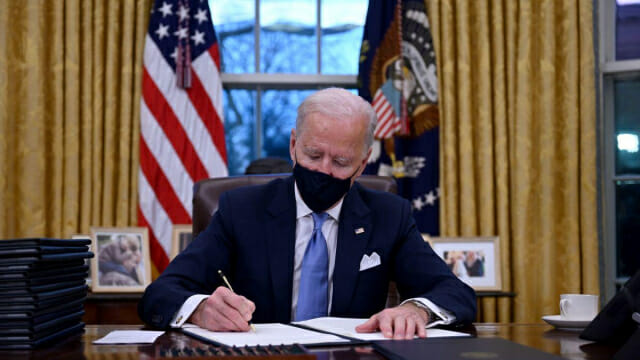
The domestic battery industry is welcoming to the US government’s review of the electric vehicle battery supply chain, which has revealed problems in supply and demand due to the spread of Corona 19. The prospect is raised that the US will lower its dependence on Chinese batteries and strengthen cooperation with allies such as Korea and Japan.
According to foreign media and industry, US President Joe Biden signed an executive order on the 24th (local time) to review local supply chains for four industries, including electric vehicle batteries, semiconductors, rare earths, and pharmaceuticals. The review period is 100 days from this date.
When signing the executive order, President Biden said, “Let’s reinforce our supply chain and complement the previous executive order so that we can make the products we need in the United States.” I will review it.”
This is due to the difficulty in supply and demand for major components such as semiconductors and batteries due to the spread of corona last year. At first, the shortage of automotive semiconductors was a problem, but the Biden government began a full review of the battery industry, which is experiencing a worldwide supply shortage.
Are the three Korean companies’ battery dependence growing?
The domestic industry is putting weight on the interpretation that the US is trying to reduce its dependence on Chinese products and strengthen its market dominance through a supply chain review. In the case of the electric vehicle battery industry, global countries, including the US, are looking forward to China, Korea, and Japan.
Three domestic battery companies (LG Energy Solution, Samsung SDI, and SK Innovation) are also contributing to the local battery supply chain by operating factories in the United States. At the same time, the fact that CATL, a Chinese battery company, maintains the No. 1 market share, is a threat to the US trying to lower its dependence on China.
An official in the battery industry said, “The US is the second-largest market after China in terms of electric vehicle battery demand, but it is an area where high growth is expected in the future along with the European market.” “Supply and demand in the country is important.”
Another industry insider said, “What the US wants most is to supply batteries locally by domestic battery companies, but it is impossible at this time. The next best thing is to strengthen cooperation with the battery industry of the countries with which it is allied. It is possible to request the expansion of the domestic battery production capacity (CAPA) with Panasonic in Japan,” he predicted.

U.S. president veto power in LG-SK Inno lawsuit, Georgia plant is variable
It is also noteworthy that this supply chain review will affect LG and SK’s electric vehicle battery lawsuit in the US. There is also a cautious possibility that President Biden will take out a veto to improve battery production capacity in the U.S. to the lawsuit for infringing battery trade secrets of both companies, which was concluded with LG’s partial victory.
Related Articles

Biden “continues Chinese checks… method is different from Trump”

The U.S. breaks through the supply of semiconductor and electric vehicle batteries

US ITC and LG raised their hands… “SK Ino bans battery import for 10 years”

It’s not easy to agree… LG Ensol-SK Inno negotiations’difficulty’
The U.S. International Trade Commission (ITC) ruled on SK’s final defeat in a lawsuit for infringing battery trade secrets filed by LG Energy Solutions against SK Innovation on the 10th (local time). If President Biden does not exercise his veto during the 60-day deliberation period, the ruling is expected to take effect immediately.
It is also uncertain that SK Innovation has invested 3 trillion won to operate the battery plant 1 and 2 under construction in Georgia. For SK, the U.S. president’s veto is more important than anything else. Earlier, Georgia Governor Brian Kemp also asked President Biden to exercise his veto power, saying, “SK Innovation’s construction of a battery plant could be damaged.”
